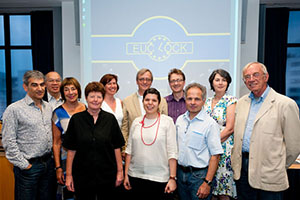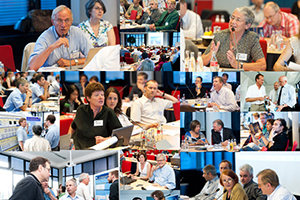We are what we repeatedly do. Excellence, then, is not an act, but a habit. Aristotle
Final Symposium
From Lab to Life
June 8th and 9th 2011 - DIN e. V., Burggrafenstraße 6, 10787 Berlin, Germany
Over the past five years, 29 laboratories and five companies from eleven European countries investigated how the biological clock synchronises to the 24-hour environment. This Integrated Project (IP LSHM-CT-2006-018741) was funded by the 6th Framework of the European Commission. Mismatches between biological and social timing, mainly due to inappropriate work times (including shift-work), pose a serious problem in modern life with wide-ranging consequences for health and performance (sleep pathologies, obesity, metabolic syndrome, depression, increased cancer risks, and cognitive deficits) and with huge financial consequences, adding up to hundreds of billions of € per year across Europe. The results of EUCLOCK’s research have provided new insights that help to solve this problem, ranging from the cellular and genetic mechanisms of the circadian clock to methods for recording the body clock in humans in real life situations. By understanding biological timing on an individual basis, scientists can optimise their experimental designs and analyses, physicians can fine-tune medical diagnostics and therapy, and industry can organise healthier work-times.


